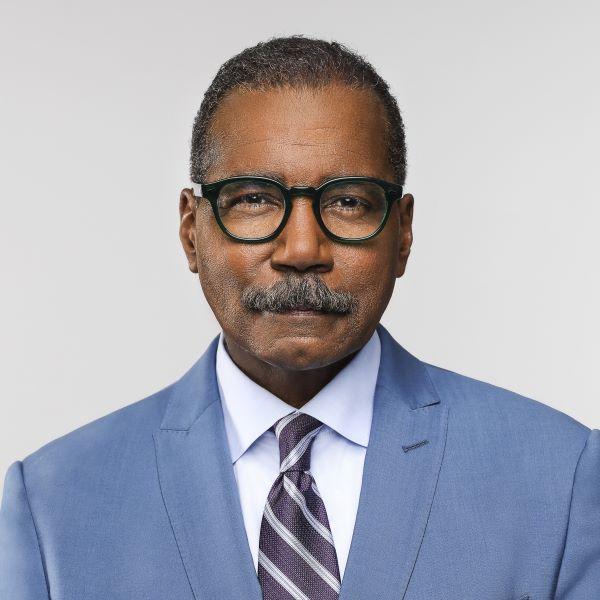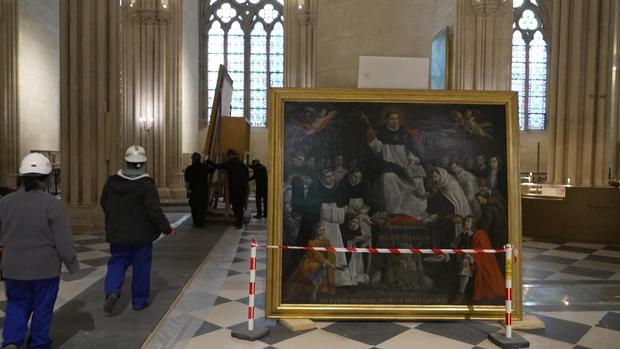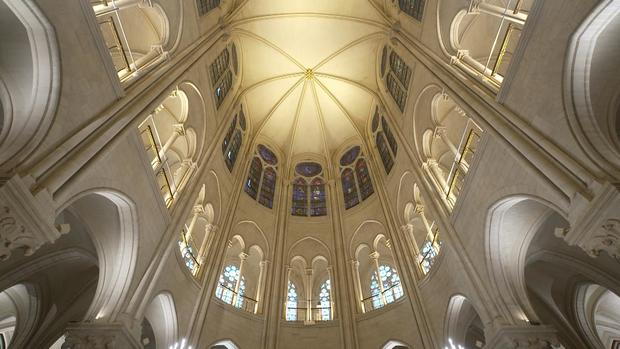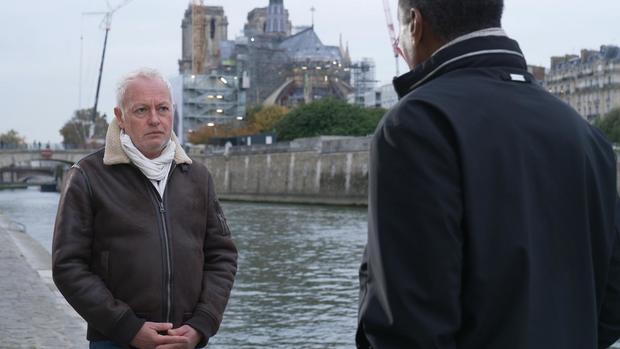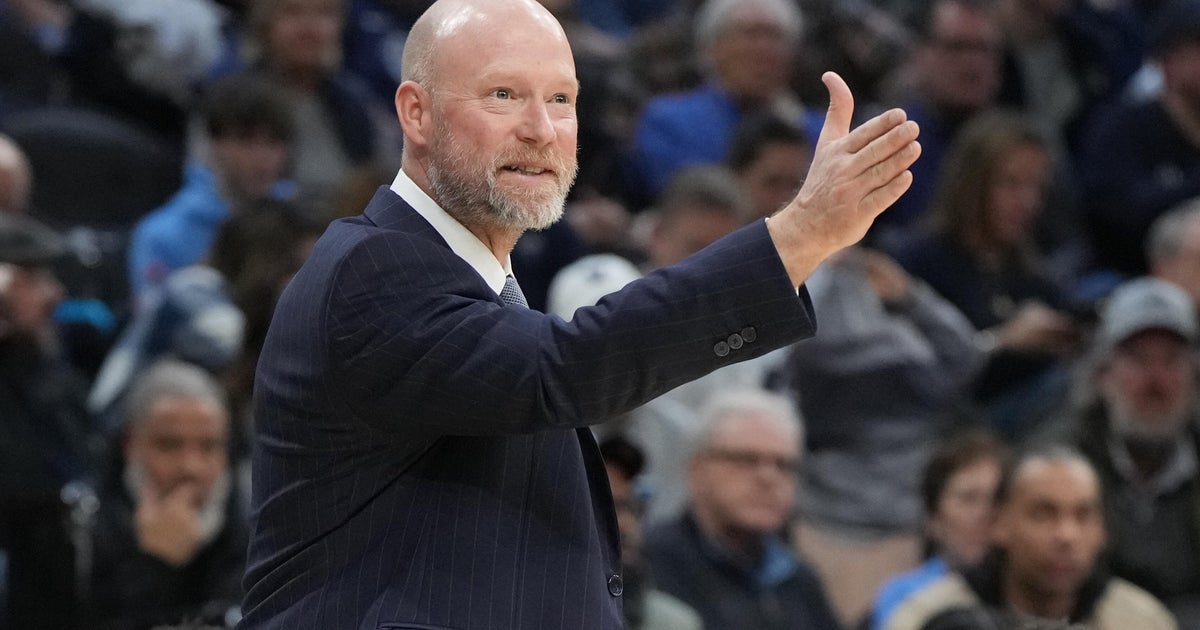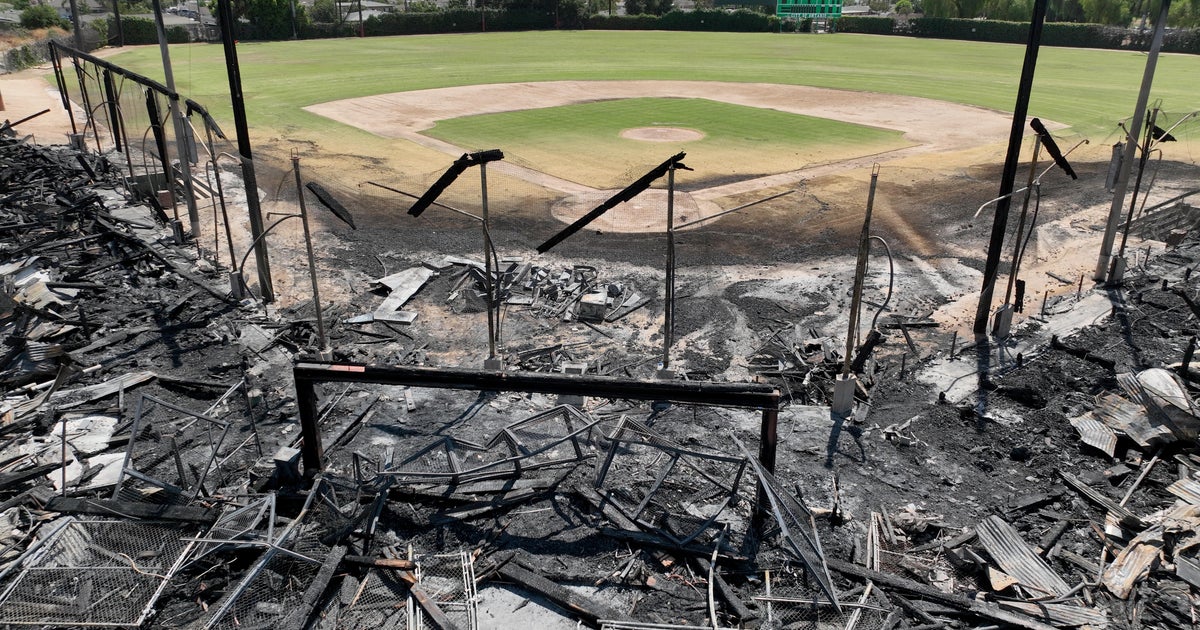Restoration workers "make possible the unthinkable" with Notre Dame reopening, France's Macron says
The iconic and beloved Cathedral of Notre Dame has reopened its doors five years after French President Emmanuel Macron set an ambitious restoration goal.
As the Paris landmark's remains smoldered in 2019, some doubted it could be done — with one expert saying reconstruction could take 40 years and some calling Macron crazy. But the French president had faith in his countrymen and their abilities.
"I saw these guys, these firemen, I mean, just going beyond their own capacities with such energy and commitment," Macron said. "And I think this is exactly, this is a sort of metaphor of what our societies, and especially our democracies, need: make possible the unthinkable."
What went into reconstructing Notre Dame
Last year, Macron appointed Philippe Jost to lead the team restoring Notre Dame. Several weeks ago, 60 Minutes met with him just inside what was still an active construction zone. Signs of the 2019 fire are now gone.
Then, the cathedral's nave was littered with burnt wood and stone rubble. There was a gaping hole in the ceiling where the flaming spire crashed through. Even when 60 Minutes visited in 2023, dense scaffolding remained.
Now, it is open and airy. Every stone shines, every stained glass window is polished and every masterpiece glows — all topped by a new spire and roof.
"In this monument, there is a soul," Jost said.
Many of the achievements, like the new spire and roof, are massive. Notre Dame's huge bells were removed after the fire for cleaning and repair. They were tested a few weeks ago, marking the first time the famous bells rang in five years. The cathedral's organ, the largest in France with its 8,000 pipes, was also removed, repaired and reinstalled.
During 60 Minutes' recent visit, workers dangled outside on ropes hammering wood into place, and carefully cemented paving stones. Inside, workers delicately applied wax to ancient wood, ensured every lightbulb was lit and every floor was polished.
Painting restorer Diana Castillo worked in the many small chapels of Notre Dame, where centuries ago, murals were painted onto stone walls and ceilings. The murals were cloudy and dim after the fire. The cleaning process alone was almost a year long. They removed not just soot, but also centuries of grime.
"We were like, 'OK — now we can see the paint. Now we can appreciate it and start the real, the restoration," she said.
Today, the murals are gleaming. Ceilings show starry night scenes with deep blues and gold. Stone columns that had been gray are now kaleidoscopes of color.
"I'm sure many people will be shocked," Castillo said. "And the resultats (results) like this are very satisfying for us, of course."
Similar transformations are everywhere in the new Notre Dame. Stone walls and ceilings that had been dark and gloomy seem to shine, and so do many of the marble statues and decorative metalworks. The workers and craftspeople who have pulled this off are known as "compagnons."
Hopes for the future of Notre Dame
Anne Dias Griffin, who was born in France and educated in the U.S., runs an investment firm that helped mobilize financial support in America to revitalize Notre Dame. Her contribution was one of the largest from anyone in the U.S.
"The support from Americans was just tremendous," she said. "There were over 45,000 donors who contributed funds to the cathedral for a sum of over $57 million. So we should be incredibly proud of that."
Every penny of that was needed. The total cost of restorations is nearing $1 billion. Donations are also going toward safety measures to prevent another tragedy, Jost said.
Jost said he is confident the new fire detection and suppression systems will prevent another catastrophe.
"It will not happen again," he said.
He also believes that rebuilding Notre Dame, as they did, using "old" materials of stone and wood and lead will help the 860-year-old landmark last for another 860 years, "and perhaps more."
Philippe Villeneuve, chief architect since before the fire, championed the use of traditional materials, especially for the spire, constructed just as it had been, with one new touch.
"I left a small mark of myself," he said in French. "In one of the hooks of the new spire is my face, with an admiring and affectionate look, to represent all the compagnons (companions) who rebuilt the cathedral."
Rebuilding Notre Dame and themselves
Villeneuve said rebuilding Notre Dame was, in a way, helping him rebuild himself.
"Today I can watch images of the fire, see the spire falling into the flames," Villeneuve said in French. "That's something I couldn't watch before."
Last year, Villeneuve supervised the construction of a new wooden spire and its lead covering and designed a new rooster – a symbol of the French people — for its peak. It was put in place last December.
"When we put the rooster and the cross in place, I felt that a wound had been closed," he said in French.
Anne Dias Griffin, who visited the site a few times during the reconstruction process, said she was struck by the commitment, the joy and the responsibility of the workers she met.
"Notre Dame symbolizes something universal," she said. "And that's something to be cherished."
The reconstruction of the iconic landmark brought unity and pride to France, Macron said.
"And this is exactly what our nations need, especially in [these] times," Macron said. "We should try to consider this type of moment and great projects and [say], 'if we're ready and able to do so, why don't we do it to try to fix other, perhaps more abstract but very important, big issues of our countries?'"
